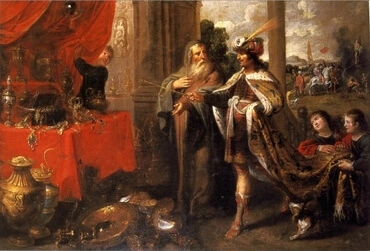9
And I say unto you, Make to yourselves friends by means of the mammon of unrighteousness; that, when it shall fail, they may receive you into the eternal tabernacles.
9
And I say unto you, Make to yourselves friends by means of the mammon of unrighteousness; that, when it shall fail, they may receive you into the eternal tabernacles.
By Brian David

The debtors in this story had improved their spiritual states by submitting their "borrowed" ideas to external forms of religion - which had truth to teach even though they were infested with evil desires. The steward, meanwhile, improved his standing by applying his religious forms to the disordered ideas of the debtors - a step toward getting rid of those evil desires and replacing them with desires for good. Here the Lord begins to tell us to do the same.
"Unrighteous mammon" represents true knowledge held by those who are evil and used toward evil ends. In a way, that’s something both the steward and the debtors had - ideas about what is true and good, but no desire for good to bring those ideas to life. A "friend" is someone connected through ideas and thought; making friends out of unrighteous mammon means gathering and sharing that knowledge held by evil people, without sharing the evil. That’s something the steward and the debtors did, to the benefit of both.
©2024 New Christian Bible Study Corporation. All rights reserved. Printed from newchristianbiblestudy.org
ResponsiveVoice usus est in Non-Commercial License 
©2024 New Christian Bible Study Corporation. All rights reserved. Terms of Use | Privacy policy.